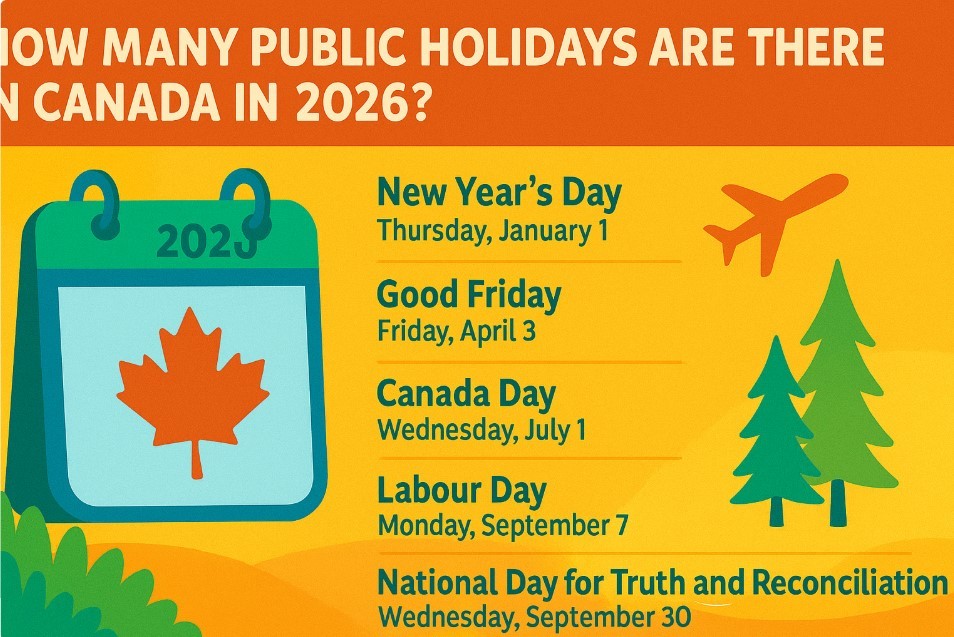2025 Argentina Calendar - Full List of Public Holidays And Observances
| Table of Contents |
An Overview of Holidays in Argentina
Argentina, home of the tango, stunning landscapes, and football madness, beckons with its boundless energy and exciting adventures. Argentina, a captivating South American nation, is diverse and full of contrasts, from the aroma of grilling steaks wafting through Buenos Aires streets to the majestic Andes jutting out into the blue sky.
Argentina, unlike the United States, Canada, and a number of European countries, celebrates a large number of national holidays and observances.
The majority of Argentineans identify as Christians, so the country's holidays reflect that. Amazingly, there is no official holiday observed on Whitsun. There are, instead, a number of commemorative days and the world-famous Carnival.
There seem to be a lot of holidays in Argentina, but in reality, many of them are specific to certain regions or demographics. The Jewish New Year is celebrated by Jews and the Islamic New Year by Muslims, despite the fact that both groups are clearly in the minority. Additionally, Jews do not work on Yom Kippur and Muslims do not work on the day that Ramadan ends because it is the breaking of the fast.
The holiday will be observed on the Monday before the italicized dates if they are on a Tuesday or Wednesday. Holidays will be observed on the Monday following if they occur on a Thursday, Friday, Saturday, or Sunday.
Full List of Public Holidays And Observances in Argentina 2025
New Year's Day, 1 Jan Wednesday - National Holiday
Argentina celebrates New Year's Eve all the way through January 1, with a holiday on January 1. The celebrations reach their peak when the clock strikes midnight on December 31, 2018.
Argentina gets many of its New Year's traditions from other places, but most of them come from Spain and Roman Catholicism.
On New Year's Eve, families eat dinner late at night and toast together at midnight. They eat "sweet bread" called pan dulce and turron, a nougat treat made with egg whites and toasted almonds that is sweet and sticky. Because of the influence of Italian immigrants, Turron became part of Argentinian culture.
As an old tradition, some people run around the block carrying a suitcase to wish themselves luck and a lot of travel in the coming year. Others eat a lot of beans to make sure they keep their job or find one that pays well. One tradition that comes from Native American times is going for a swim in a lake or river.
People leave their homes at midnight to watch as kids and other people in the neighborhood set off a lot of fireworks. Neighborhood friends get together to dance, sing, and party until dawn.
A lot of people go to mass on New Year's Day to thank God for the past year and ask for His blessings on the coming year. On New Year's Day in the afternoon, families have picnics. Kids under 10 will often get candy and small gifts from grandparents and older people on January 1.
Saturday Ramadan Start (Tentative Date), 1 Mar - Observance
In Islam, Ramadan is the ninth month of the year. It is also written as Ramadhan or Ramzan. This is the time of year when Muslims all over the world focus on religious devotion, prayer, fasting, and giving to charity. The last third of Ramadan is a very holy time because it marks the anniversary of when the first verses of the Koran (Qu'ran) were revealed to the Prophet Muhammad (Mohammad or Muhammed).
Saturday, March 1, 2025, is Ramadan Start, but it is also a work day. In Argentina, most stores have set hours when they're open.
Monday Carnival, 3 Mar Monday - National Holiday
Like many other Roman Catholic nations, Argentina celebrates Carnival in the months of February and March annually. The exact date is subject to change, but it is always the day before Ash Wednesday, the beginning of the 40-day Lenten fast that culminates in Easter.
Argentina celebrates Carnival with two days of public holidays: Monday and Tuesday immediately before Ash Wednesday.
When the Spanish and other European settlers arrived in what was then known as the colony of "La Plata" in Argentina in the 1600s, they brought carnival with them. Argentine Carnival is distinct from other celebrations because it was shaped by Spanish Carnival traditions, which were in turn influenced by African and other traditions.
Every weekend from January through March, Gualeguaychu hosts the largest and most extravagant Carnival celebrations in Argentina. Also, Carnival is a huge deal in Argentina's northern region.
In certain regions, a Carnival tradition honors the bond between grandmothers and mothers on the Thursday preceding Ash Wednesday. "Tincunaco ceremony" is the name given to it. Under a willow-branch arch adorned with sweets, fruits, cheeses, flowers, and lanterns, a line of mothers will meet with a line of grandmothers. During the ceremony, they will also exchange dolls.
In Argentina, the days leading up to the start of the Lenten fast are filled with festivities and feasting. Many practicing Roman Catholics fast from meat and other foods that are considered vices during the Lenten season.
Carnival / Shrove Tuesday / Pancake Day, 4 Mar Tuesday - National Holiday
March Equinox Season, 20 Mar Thursday
At the exact moment that the Sun moves from south to north along the celestial equator—an imaginary line in the sky above Earth's equator—the March equinox occurs. Depending on the year, this occurs on March 19, 20, or 21.
Truth and Justice Day, 24 Mar - National Holiday
The 24th of March is "Truth and Justice Day" in Argentina. The goal of the day is to remember the people who died during the dictatorship that ruled Argentina from 1976 to 1983. This dictatorship is called "La Ultima Dictadura," which means "the last dictatorship," because the people who run it don't want another dictator to take over the country.
People who lost loved ones during that time hold peaceful rallies and marches on this day. People from all walks of life—relatives of people who have gone missing, members of social movements, human rights groups, and left-wing political parties—march to the Plaza de Mayo in Buenos Aires to remember the people who died during the last dictatorship and demand that the government be held accountable for the crimes against humanity it committed during that time.
End of Ramadan (Tentative Date), 31 Mar Monday - Optional Holiday
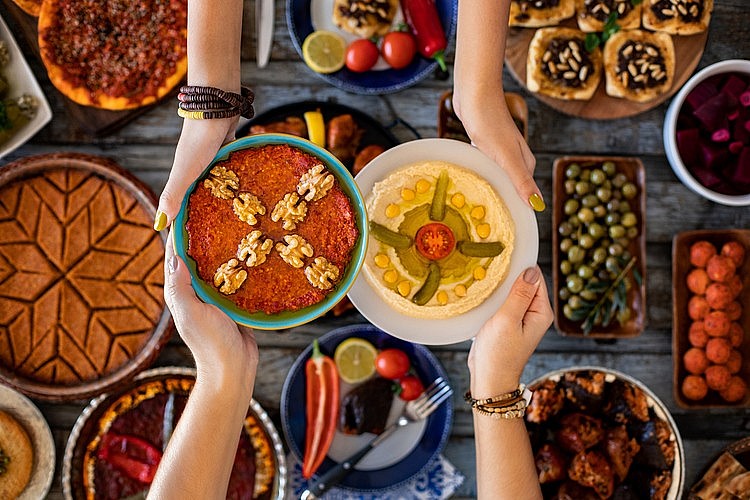 |
| Eid ul Fitr is a time to share great food with family and friends. |
Eid ul Fitr signifies the conclusion of Ramadan, the Islamic holy month of fasting and prayer, for Muslims worldwide. Within the Islamic calendar, it is one of the biggest and most significant holidays.
This is a Muslim-only holiday, meaning that nobody can work on it. The majority of businesses, schools, and public organizations are open, however some private businesses might have shortened hours.
 Happy Ramadan: Top 25 Most Popular Words/Phrases and Pronunciation in Arabic, English Happy Ramadan: Top 25 Most Popular Words/Phrases and Pronunciation in Arabic, English |
Day of the Veterans (Malvinas Day), 2 Apr Wednesday - National Holiday
Malvinas Day is observed annually on April 2 in Argentina to commemorate the moment in 1982 when Argentine forces took control of the Malvinas, removing them from British rule and setting off the 74-day Falkland War.
The Day of Argentine Sovereignty over the Malvinas, Sandwich, and South Atlantic Islands was a holiday that Argentina once observed. However, this earlier holiday was replaced in 2001 by Malvinas Day.
The purpose of the day is to honor the more than 600 Argentine soldiers who lost their lives during the ten-week battle for the Falkland Islands. Argentina is still against the United Kingdom's claim of sovereignty over the islands.
Passover Eve, 12 Apr Saturday - Observance
Even though Passover Eve falls on Saturday, 12 April 2025, it is a working day. Most businesses follow regular opening hours in Argentina.
First day of Passover, 13 Apr Sunday - Optional Holiday
Typically observed in April, the seven-or eight-day Passover festival begins on the Hebrew calendar's fifteenth day of Nisan. It commemorates the Exodus from Egypt and the emancipation of the Israelites from slavery, as recounted in the Haggadah, which occurred more than three thousand years ago.
Only those who practice Judaism are required to take the day off from work. Most businesses, schools, and public organizations are open, though some private ones may have shorter hours.
Second Day of Passover, 14 Apr Monday - Optional Holiday
This is a non-working holiday only for people who follow the Jewish faith. Public organizations, schools, and most businesses are open, though some private enterprises may have reduced hours.
Maundy Thursday, 17 Apr Thursday - Optional Holiday
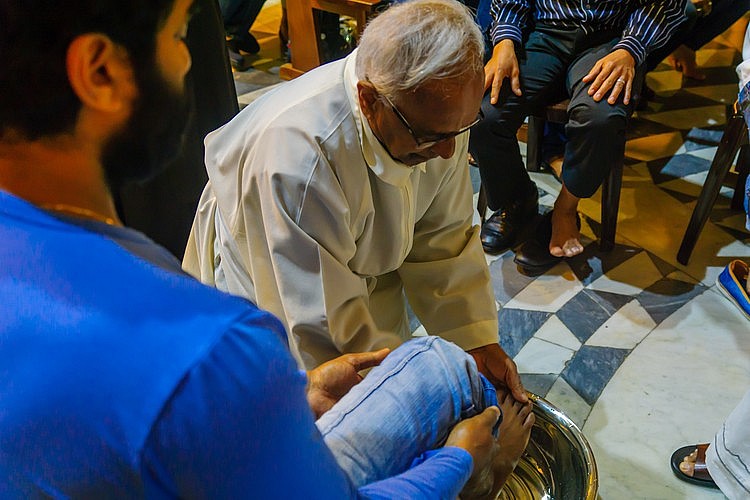 |
| Ceremonial foot-washing is a ritual on Maundy Thursday to imitate Jesus, who washed his disciples’ feet. |
Maundy Thursday honors the institution of the Eucharist by Jesus Christ during the Last Supper, as recorded in the Christian Bible.
There isn't a national holiday observed today. Employers have the option to grant their staff a day off. Private companies, public institutions, and schools might operate with fewer hours.
Good Friday, 18 Apr Friday - National Holiday, Christian
Argentina is a deeply Catholic country, with 85% of its people identifying as Roman Catholics. Easter, then, is a highly significant season in this nation.
Due to the national holiday of Good Friday, most businesses are closed. On the Thursday before, which is the Last Supper, many store owners even close their doors. This results in a four- or five-day weekend where people fervently commemorate the death, burial, and resurrection of Jesus Christ.
Reenactments of Jesus' life are celebrated in many towns and cities across the nation during Holy Week and Easter. For a full two weeks, there are, in fact, masses, processions, and "religious carnivals."
Instead of the customary palm branches, priests bless olive branches on Palm Sunday and distribute them to the populace for use in remembrance of the Triumphal Entry. Many parishes in the area depict the crucifixion on Good Friday by performing the Way of the Cross, and on Holy Saturday there is a solemn silence before the joy of Easter morning.
Holy Week is a continuation of Lent, lasting until Easter Sunday. Meals are kept smaller than normal and all meat is avoided except fish. Suddenly, a lot of dishes that typically call for meat become vegetarian or seafood-focused. Bacalao, or salt cod, is the customary dish served on Good Friday.
18 Apr Friday Sixth Day of Passover Observance
19 Apr Saturday Seventh Day of Passover Optional Holiday
20 Apr Sunday Easter Sunday Observance, Christian
Easter Sunday is one of the most festive events among Christians worldwide. It commemorates Jesus Christ’s resurrection from death, as written in the Christian bible.
Easter Sunday is not a public holiday. It falls on Sunday, 20 April 2025 and most businesses follow regular Sunday opening hours in Argentina.
Last day of Passover, 20 Apr Sunday - Optional Holiday
Action Day for Tolerance and Respect between People, 24 Apr Thursday - Observance
Action Day for Tolerance and Respect between People is not a public holiday. Businesses have normal opening hours.
Labor Day / May Day, 1 May Thursday - National Holiday
Labor Day is observed on May 1st in Argentina. It is a public holiday and day off from work intended to highlight the rights and contributions of the country's workforce while also providing much-needed relaxation.
On May 1st, labor unions frequently hold demonstrations and rallies in Argentine cities. Individuals may get together to hear talks on workers' rights at their workplace or in private homes.
Workers Day was observed as a public holiday in Argentina in 1930, but it was first observed in 1890 by trade unions under socialist control. And its prominence and popularity have increased since the 1940s and 1950s.
National Day/May 1810 Revolution, 25 May Sunday - National Holiday
In observance of the anniversary of the 1810 revolution that resulted in Argentina's independence, Revolution Day is observed annually on May 25.
The Spanish Viceroyalty of Rio de la Plata included Argentina, Bolivia, Paraguay, and Uruguay until 18 May 1810. British ships docked in Uruguay on May 18th, conveying news of various conflicts in Spain caused by French retaliation against rebellions against the coronation of Napoleon's brother Joseph Bonaparte as king. Because of this, the country's middle and upper classes rose up in rebellion against the Spanish government.
In the wake of the Spanish revolution, officials gathered in Buenos Aires on May 22 to plot the viceroyalty's course of action. The Primera Junta, also known as the First Assembly, assumed power after Viceroy Baltasar Hidalgo de Cisneros was compelled to resign. In the beginning, the viceroy was named president, but he resigned because he was unhappy with the position. After Cornelio Saavedra took office as president, Argentina proclaimed its independence on May 25, 1810. Hence, the revolution was more of a shift in political authority than a direct conflict.
When Argentina's War of Independence began, it was with the May Revolution. It was not until 9 July 1816, however, that formal independence was granted.
Eid al-Adha (Tentative Date), 7 Jun Saturday - Optional Holiday
Commemoration of General Don Martín Miguel de Güemes, 17 Jun Tuesday - National Holiday
Argentina named Martín Miguel de Güemes a "national hero" in 2006 and made June 17, 2007, a public holiday in his honor. His home province was Salta, which is in the northeast of Argentina. He was one of the most important leaders in the war for independence against Spain.
The 17th of June was picked because that's when Güemes died. He was shot in the back and died. He made it back to camp before he died with his soldiers. "To die for our fatherland is glory" were the last words he spoke. About a month later, on July 22, 1821, his men finally beat the pro-Spanish forces in Salta. They were likely very motivated by the death of their leader.
The main party is held in Salta, which is where Güemes is from. Two days of riding around town by people dressed in black and red, like the gauchos who used to ride with Güemes. Late at night on the last night, big fires are lit near the Güemes monument on San Bernando Hill. It's a time to remember the great liberator of the past and be grateful for the freedom that he gave to the people of Argentina today.
Flag Day, 20 Jun Friday - National Holiday
The holiday takes place on June 20th. The holiday used to be on the third Monday in June before 2011.
There are three horizontal stripes on the Argentine flag. The top and bottom stripes are sky blue, and the middle stripe is white. A yellow sun shines in the middle of the middle stripe.
Manuel Belgrano made this one-of-a-kind design in 1812. The new flag was used right away in the war for independence, even before July 9, 1816, when independence was officially declared. Flag Day is celebrated on June 20, which is the day that Belgrano died. It wasn't until 1938 that that date was set.
Flag Day is about a lot more than just the history of the flag of Argentina. The day is about Argentine culture, patriotism, and unity as a country.
June Solstice Season, 20 Jun Friday
To be in the Northern Hemisphere, the Sun must be directly above the Tropic of Cancer on June 21. It gets as far north as this latitude during the year. It starts moving south again after the solstice.
27 Jun Friday Muharram/New Year (Tentative Date) Optional Holiday
In the Islamic calendar, which is based on the moon instead of the sun, the New Year is on the first day of Muharram, which is the first month.
People who are Muslim are the only ones who can't work on this holiday. Most businesses, schools, and public places are open, though some private businesses may have shorter hours.
Independence Day, 9 Jul Wednesday, National Holiday
The 9th of July is always Argentine Independence Day (Día de la Independencia in Spanish).
Argentines got their independence from Spain on July 9, 1816, and this holiday is a celebration of that.
Between Spanish people born in the Americas (called creoles) and Spanish people who had just moved to the country (called peninsulars) things were getting worse by 1810. Some revolutionary groups in Brazil were hopeful that they could get rid of Spanish rule after the capture of Fernando VII, the Spanish king. There was chaos in the country from May 22 to 24. Some people wanted to get rid of Viceroy Cisneros, while others wanted to set up a government where the Viceroy and people from Buenos Aires would still have a say.
It was decided to keep the Viceroy in power, which made the people rebel. They crowded the gates of the open cabildo and demanded that he step down and the junta be broken up. The Buenos Aires Council decided on May 25, 1810, to get rid of the Viceroy and set up its own court. The United Provinces became independent on July 9, 1816, after Napoleon lost the Battle of Waterloo. This was announced in a meeting of Congress. It was put into effect when General San Martin's troops beat the Spanish Army in 1817.
San Martin Day, 18 Aug Monday - National Holiday
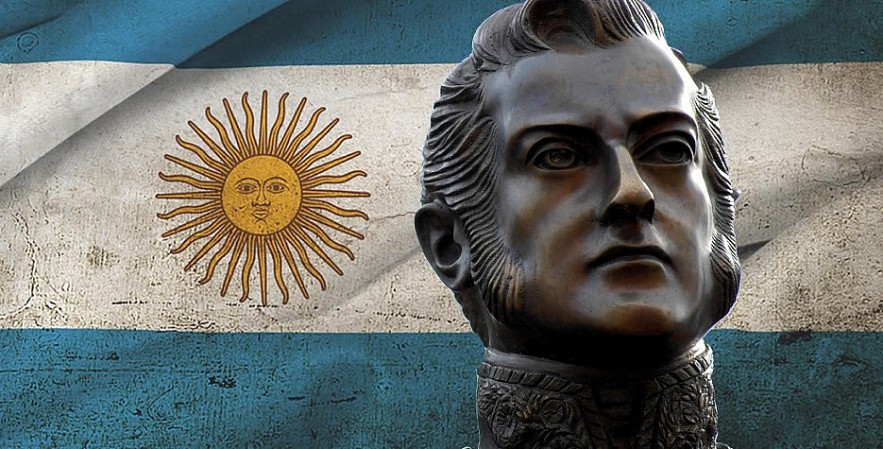 |
| San Martin Day |
Argentina commemorates José de San Martín's death on the third Monday of August as a national holiday.
San Martin is considered the most significant Argentinian founding father, liberating parts of Argentina, Chile, and Peru alongside O'Higgins and Bolívar.
Argentine general José Francisco de San Martín y Matorras (February 25, 1778 – August 17, 1850) led the successful struggle for independence from Spain in South America.
San Martín, along with Simón Bolívar in the north, is considered a liberator of Spanish South America.
He is a national hero in Argentina, Chile, and Peru. San Martin earned several honorifics for his deeds. He is known as the "Padre de la Patria" in Argentina. In Peru, he is known as "Fundador de la Libertad del Peru" (founder of freedom), "Protector de Peru" (protector of Peru), "Fundador de la República" and "Generalísimo de las Armas" (founder of the Republic and supreme commander of weapons). Chileans call him "Captain General".
Rosh Hashana Eve, 22 Sep Monday - Optional Holiday
This is a non-working holiday only for people who follow the Jewish faith. Public organizations, schools, and most businesses are open, though some private enterprises may have reduced hours
September Equinox Season, 22 Sep Monday
The September equinox is when the Sun moves from north to south across the celestial equator, which is a made-up line in the sky above Earth's equator. Most years, this takes place on September 22, 23, or 24.
Rosh Hashana, 23 Sep Tuesday - Optional Holiday
Second Day of Rosh Hashana, 24 Sep Wednesday - Optional Holiday
Yom Kippur Eve, 1 Oct Wednesday- Optional Holiday
Yom Kippur, 2 Oct Thursday - Optional Holiday
 |
| Yom Kippur |
Yom Kippur, also called the Day of Atonement, falls on the tenth day of Tishrei (Tishri), the seventh month in the Jewish calendar, and signifies the conclusion of the Yamim Noraim (Days of Awe). Numerous Jewish communities observe strict fasts and periods of prayer.
This is a Jewish holiday, meaning that only Jews are allowed to work on it. The majority of businesses, schools, and public organizations are open, though some private businesses might have shortened hours.
Day of Respect for Cultural Diversity, 13 Oct Monday - National Holiday
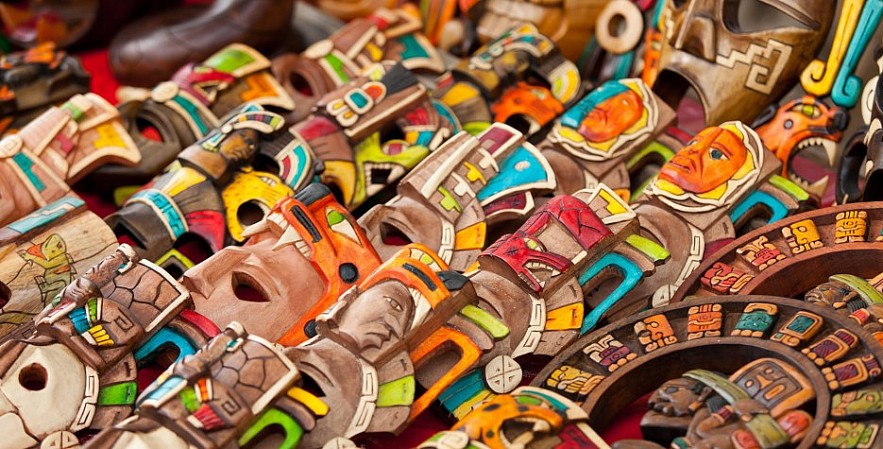 |
| Day of respect for cultural diversity in Argentina |
There, the holiday is now called the Day of Respect for Cultural Diversity. The holiday takes place on the second Monday of October. Some native groups may see Columbus and the Europeans' arrival as a bad thing, which may explain why the name was changed and the traditional date was moved.
A lot of people take the day off to honor cultural diversity. People in general have the day off, and most schools and businesses are closed.
The 12th of October in Argentina used to be called the Day of Race, but in 2010 President Cristina Fernández de Kirchner signed Decree 1584, which changed the name of the holiday to the Day of Respect for Cultural Diversity.
In 1917, almost one hundred years before the decree was signed, Argentine President Hipólito Yrigoyen made October 12 a Día de la Raza to honor Christopher Columbus, the Italian explorer who first came to the Americas. By the middle of the 20th century, academics were beginning to doubt the use of race to group people into different groups.
Mothers' Day, 19 Oct Sunday - Observance
It is Mother's Day in Argentina on the third Sunday of October.
In the past, the holiday was held on October 11th. The old liturgical celebration of the Maternity of the Blessed Virgin Mary took place on this date. When that date was moved to January 1, the tradition of having Mother's Day in October continued, and the third Sunday of October was chosen as the new Mother's Day.
As a way to show they care about their kids, Argentine moms get gifts and flowers.
 Mother's Day: Date, History and Celebration Mother's Day: Date, History and Celebration |
National Sovereignty Day,17 Nov Monday - National holiday
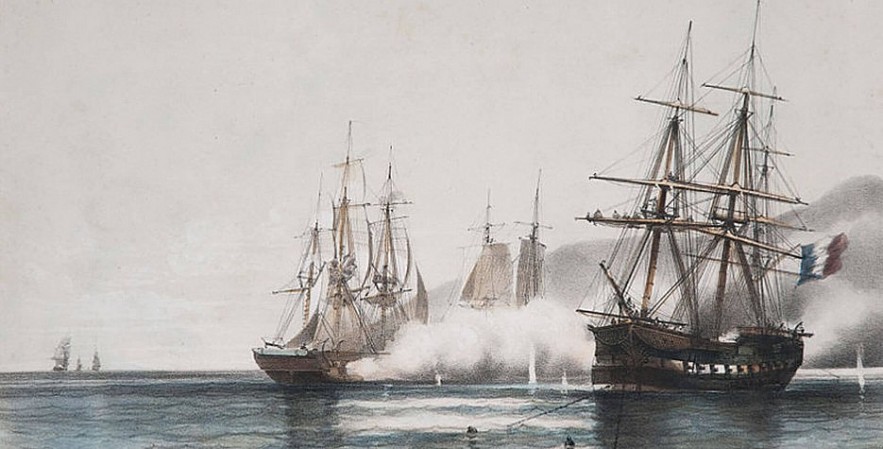 |
| Day of National Sovereignty |
In Argentina, National Sovereignty Day is held on the Monday before November 20. A peace treaty was signed between Argentina, France, and Britain after the Battle of Vuelta de Obligado on November 20, 1845. The public holiday is meant to remember that battle.
The battle of Vuelta de Obligado, which happened on November 20, 1845, is remembered on this day. It was between the Argentine Confederation and an Anglo-French navy. The Anglo-French were blocking the Río de la Plata at the time.
There is a saying that goes "lose the battle, win the war," and this was a case where that saying was true. They won, but the British and French lost so many soldiers that they had to negotiate a peace treaty with Governor of Buenos Aires Juan Manuel de Rosas.
People saw the battle as important because it started when Argentina raised trade barriers to protect regional industries from colonial powers. At the same time, de Rosas tried to get Uruguay and Paraguay to join the confederation, which made the French and British angry and led to the battle.
Since 1974, November 20 has been celebrated across the country as the Day of National Sovereignty. However, the fourth Monday of the month didn't become a national holiday until 2010.
Immaculate Conception, 8 Dec Monday - National Holiday
Immaculate Conception Day, a Roman Catholic feast day, falls on December 8th, which marks the start of the Christmas season in Argentina. In honor of the Virgin Mary, it is also occasionally referred to as the "Day of the Virgin."
Catholic doctrine holds that Mary's virginity and sinlessness at conception, as well as her continued chastity throughout her life, were prerequisites for her being able to conceive, carry, and give birth to Jesus Christ.
On December 8, many people in Argentina go to special masses where they pray to the Virgin Mary and hear about her life and virtues. On this day, a lot of people will decorate their Christmas trees. The majority of Christmas trees in Argentina are artificial because "real" ones are hard to find. However, some people will decorate "midget" pine trees.
On Immaculate Conception, the small town of Tres Cerritos in the province of Salta welcomes a large number of pilgrims. Because they think Mary appeared there in 1990 and still regularly sends messages there, throngs of people visit.
December Solstice Season,21 Dec Sunday
The exact moment when the Sun crosses the Tropic of Capricorn in the Southern Hemisphere is known as the December solstice. Its southernmost latitude for the year is this one. It starts to travel north once more after the solstice.
Christmas Day, 25 Dec Thursday - National Holiday, Christian
More than 85% of Argentinians are Roman Catholic, and most people in the country are very religious. There is a lot of religious emphasis in the way people celebrate Christmas, but there are also some secular parts to an Argentine Christmas.
The holiday season starts on December 8 with the Feast of the Immaculate Conception, and many people decorate their trees. The pesebre, or "nativity set," is another important Christmas decoration in Argentina. A lot of the time, these are put right next to the Christmas tree.
In Argentina, the biggest party is on the night before Christmas. There are celebrations early in the day, and then in the afternoon, people go to mass. When they get back home, dinner will be ready. On most nights, it's eaten between 10 and 11 pm. At midnight, after dinner, many people will raise a glass while fireworks go off in the background. Some, though, went back to church for a midnight mass to welcome Christmas Day.
Another Argentine tradition is to throw colorful "globos" into the sky on Christmas Eve. These are paper lanterns with candles inside them. It's truly amazing to see when a lot of people gather and then let go at the same time.
Some Argentinians put gifts under their trees to be opened late on Christmas Eve or right after midnight, but January 6 is when most people give gifts. Today is the "Epiphany," which means the day that the Three Kings are thought to have brought Jesus gifts.
New Year's Eve, 31 Dec Wednesday - Observance
On December 31, the Gregorian calendar marks the end of the year. New Year's Eve is one of the biggest celebrations in the world because it comes before the New Year. No matter where you are, count down to 2019.
Spain doesn't have a holiday on New Year's Eve. Businesses are open at regular times.
 NYC Public School Calendar 2024-2025: Full List of Holidays and Events NYC Public School Calendar 2024-2025: Full List of Holidays and Events Parents and students will require information regarding the holiday and event full schedule for the 2024-2025 academic year in New York City as the new ... |
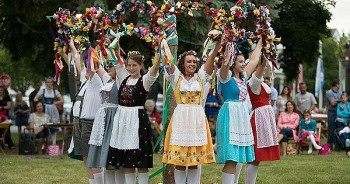 German Calendar with the Public Holidays, Observances And Celebrations German Calendar with the Public Holidays, Observances And Celebrations The 2024–2025–2026 yearly calendar features international events, special days, public holidays, and school vacations for Germany. |
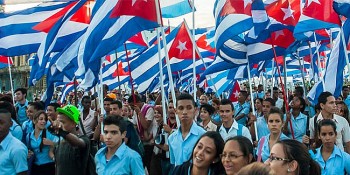 2025 Cuba Calendar - Full List of Public Holidays And Observances 2025 Cuba Calendar - Full List of Public Holidays And Observances Situated 90 miles south of Florida, Cuba is the largest Caribbean island. In 2025, there will be 22 holidays in Cuba. |
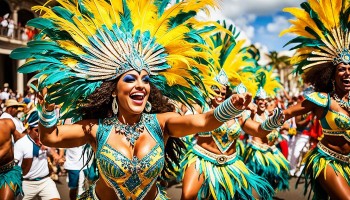 2025 Brazil Calendar - Full List of Public Holidays And Observances 2025 Brazil Calendar - Full List of Public Holidays And Observances Because Brazil has deep religious roots, most of its holidays are similar to those in most Western nations, which helps you plan your trip a ... |

